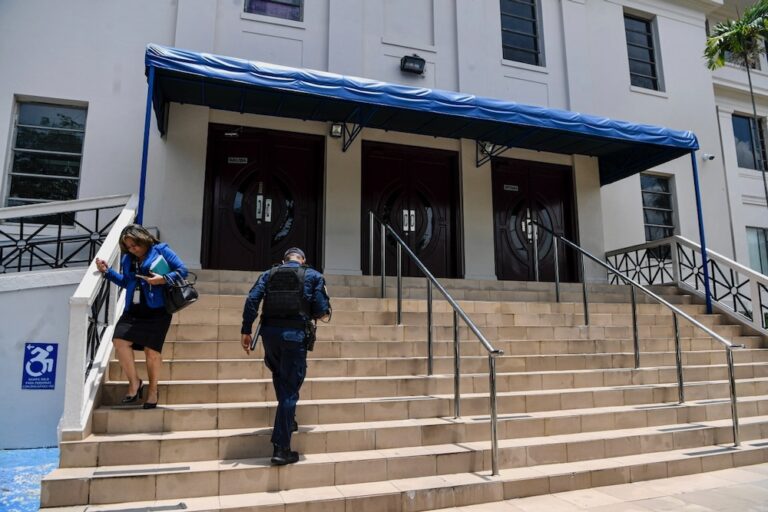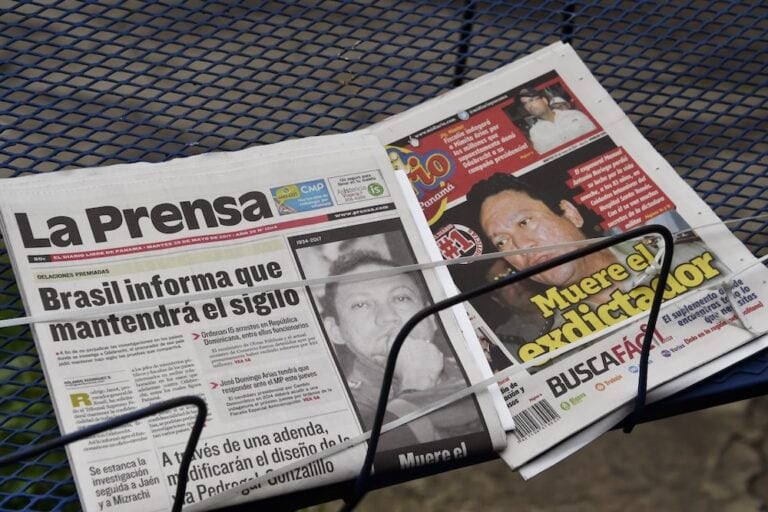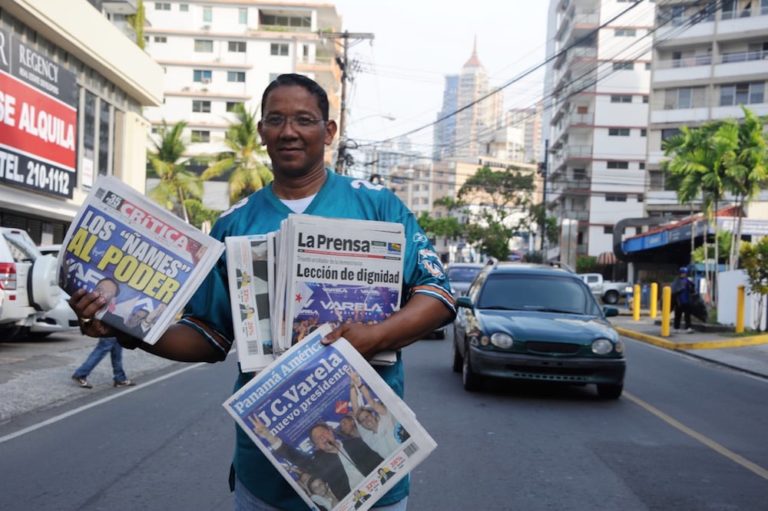(PFC/IFEX) – January 2003 marked the one-year anniversary of the passing of the Transparency Law (Ley 6, Ley de Transparencia), which set out regulations on access to information and habeas data initiatives. Throughout 2002, the Supreme Court heard 65 cases related to violations of the law. However, only 10 cases were decided in favour of […]
(PFC/IFEX) – January 2003 marked the one-year anniversary of the passing of the Transparency Law (Ley 6, Ley de Transparencia), which set out regulations on access to information and habeas data initiatives.
Throughout 2002, the Supreme Court heard 65 cases related to violations of the law. However, only 10 cases were decided in favour of the petitioner. PFC believes that the courts’ tendency to ignore access to information violations has only encouraged government officials and institutions to not act in accordance with the Transparency Law. The hardest blow against the law was dealt by President Mireya Moscoso. In May 2002, she issued a decree further restricting access to information.
Juan Antonio Tejera, of the Ombudsman’s Office, the government institution that has defended the Transparency Law, filed a complaint against the president’s decree, characterising it as illegal. However, the Supreme Court’s Third Chamber has yet to rule on the complaint.
In a letter to Moscoso, PFC expressed frustration over the government’s poor performance in implementing the Transparency Law. PFC pointed out that a number of government corruption cases remain unresolved, in large part because of the restrictions on access to information.
The organisation asked the president to rescind the May decree, noting that, “concealing information on the actions of public officials and government institutions violates fundamental human rights. Furthermore, it permits irregularities to occur, facilitates the avoidance of responsibility and discredits political activity.” The international organisation Transparency International also recently called for the decree’s withdrawal, calling it a “muzzling regulation.”
According to human rights lawyer and activist Miguel Bernal, “the Supreme Court’s and the presidency’s approach to the Transparency Law reveals these institutions’ absolute disregard for freedom of expression. Citizens have been denied access to state information.” Bernal told PFC that this attitude “further distances Panama from democracy and the rule of law, and encourages the corruption that is currently rampant in government structures.”
For PFC’s letter to President Moscoso, the text of the Transparency Law and further information, see: http://probidad.org/regional/legislacion/2001/024.html
Recommended Action
Send appeals to President Moscoso:
– asking her to repeal the May decree
– urging her to ensure that measures are adopted so that government officials cease violating the Transparency Law
Appeals To
Mireya Moscoso
President
Fax: +507 227 00 76
E-mail: ofasin@presidencia.gob.pa
Please copy appeals to the source if possible.


